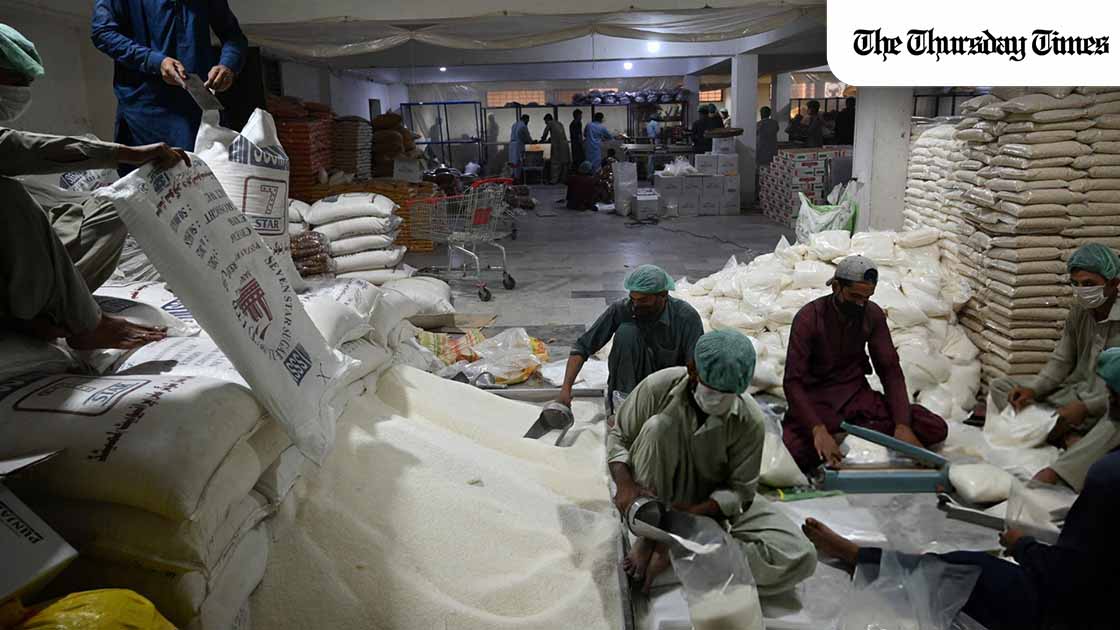ISLAMABAD (The Thursday Times) — To rein in soaring sugar prices and assert control over the powerful commodity lobby, Pakistan’s government has placed the names of several sugar stockists on the Exit Control List (ECL), barring them from leaving the country.
At a press conference in Islamabad on Thursday, Federal Minister for National Food Security Rana Tanveer Hussain defended the decision to import 500,000 metric tons of sugar at a cost of approximately $150 million, describing it as essential to prevent market volatility. While affirming that the country holds a reserve stock of two million metric tons, the minister accused hoarders of distorting the domestic market despite adequate supply.
“People will see the heat very soon,” Mr Hussain said, indicating that a broader wave of enforcement actions may follow.
The government’s sugar strategy has drawn scrutiny in recent weeks, with critics questioning the rationale for imports and past exports. The minister pushed back against what he called media sensationalism, likening it to “seasonal frogs” who appear only during crises. He insisted previous exports were authorised on the basis of surplus stock and claimed they had no adverse impact on retail prices.
According to Mr Hussain, global market conditions at the time justified exports at $750 per ton, while domestic ex-mill prices were set at Rs. 140 per kg, anticipating retail prices within an Rs. 8 to 10 margin. Post-export, prices reportedly fell to Rs. 119 per kg, contradicting public claims that exports fuelled inflation.
The minister attributed the current shortfall to climate change, noting that although the area under sugarcane cultivation increased, the expected output of 7 million metric tons fell short, with only 6.3 million tons harvested. In response, the government has now suspended all remaining export allowances, including a pending shipment of 40,000 tons, to prioritise domestic needs.
Mr Hussain also revealed that 80 percent of the nation’s sugar is consumed by commercial sectors such as bakeries and beverage producers, rather than households. He suggested that this consumption pattern should be taken into account when discussing the real impact on average citizens.
Currently, sugar is being sold at Rs. 172 to 173 per kg, with ex-mill prices fixed at Rs. 165 per kg. The government has signed a three-month pricing agreement with mills to cap the ex-mill rate at Rs. 175, allowing only a Rs. 2 margin to accommodate cost fluctuations until the next crushing season begins on 15 November.
Despite the price surge, the minister highlighted that Pakistan still ranks competitively in the region, comparing local prices to those in India (Rs. 150/kg), Bangladesh (Rs. 187/kg), Afghanistan (Rs. 173/kg), and Iran (Rs. 250/kg).
Pakistan exported sugar at a reduced global rate of $500 per ton, earning $400 million in foreign exchange. Mr Hussain lamented that the earnings could have been higher had exports been made earlier at the $750 per ton mark.
He cited support from former finance minister Miftah Ismail, who had previously endorsed Prime Minister Shehbaz Sharif’s caution in approving sugar exports last year amid domestic supply concerns. The government now hopes the incoming crushing season will bring price stability.





